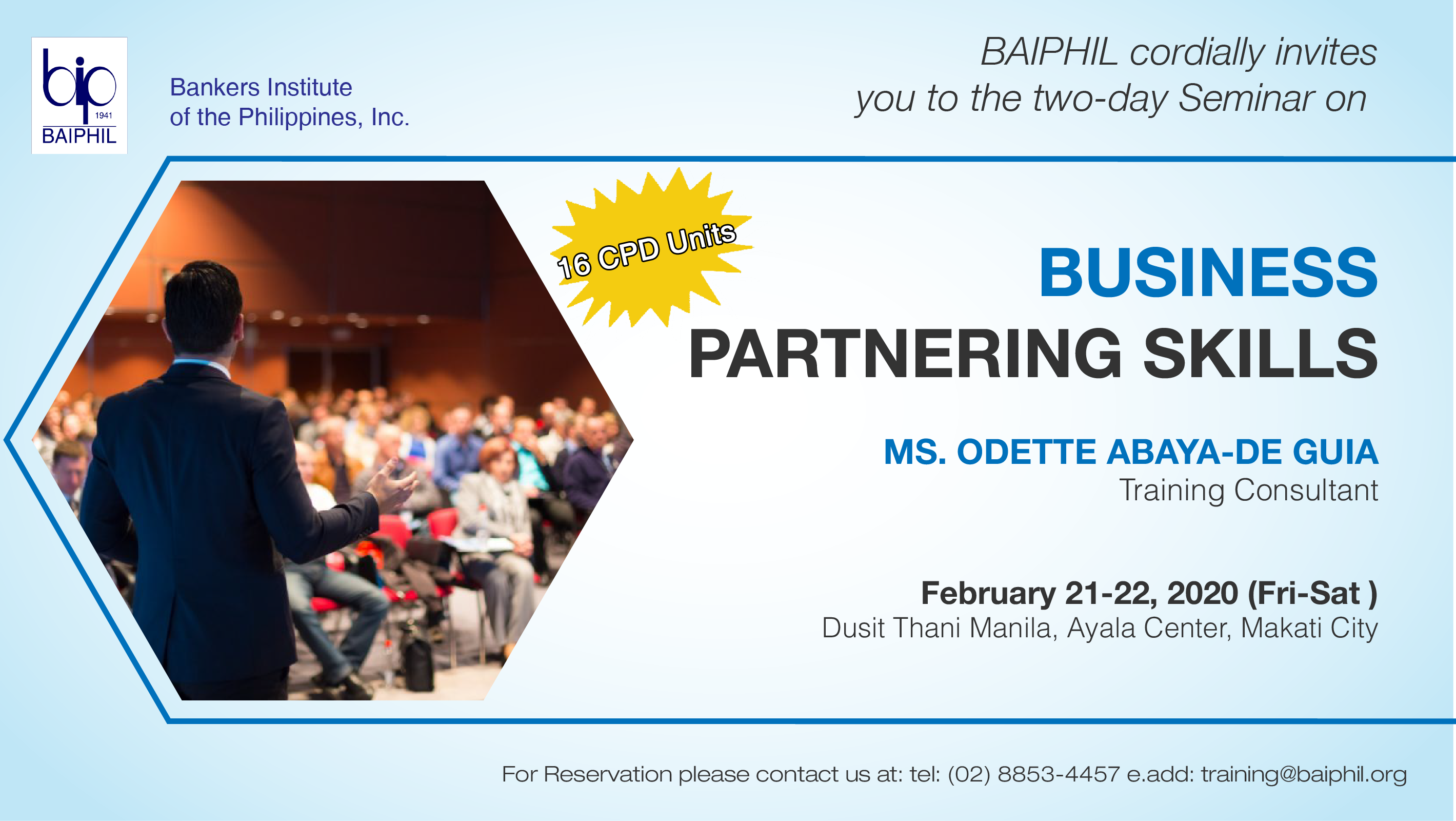Description
I. COURSE DESCRIPTION AND RATIONALE
A Finance Officer, Auditor, Compliance Officer, Risk Management Officer play multiple roles:
• Partners of management in ensuring that effective control systems are in place and processes
and decisions agreed upon are implemented;
• Technical Knowledge Expert taking the role of a consultant and/or resource person to provide
opinions, give support and advice on strategic and operational decisions through insights that
drive better business performance
• Facilitator of Change, making new knowledge, technology and policies happen in the
organization with influencing skills
An expectation of Officers is the ability to work with key stakeholders and other business peers –
to be heard, get things done, and establish effective working relationships.
To be able to do this, they should have the needed competencies to engage the stakeholders;
know the strategic direction and plans; knowledge of the Bank business model, a comprehensive
understanding of the organizational system that implements the business model and possess
effective interpersonal relationships skills to communicate goals, issues and concerns effectively,
while building a strong partnering relationship. They add value to their technical competencies
by being able to engage with other people across different areas of the business in the conduct
of their functions. They take the role as partners on financial, risk, compliance and audit matters.
In the end, they should be able to establish more effective engagement with key stakeholders
and people across the organization and be a partner in understanding, analyzing and solving
problems/ business issues or concerns.
II. TARGET PARTICIPANTS
This course is offered to those who should have core finance, audit, compliance and risk
management skills.
Ideally, they are the Vice Presidents and Middle Managers of:
1. Controllership Units
2. Audit Units
As well as:
3. Compliance Officers
4. Risk Officers
III. COURSE OBJECTIVES
At the end of the two-day course, the participants will be able to:
1. Discuss the definition of a business partner and list the key success factors of an incumbent:
core competencies, business competencies, role clarity, the power bases and value-adding
functions to have a clear understanding of the concept of business partnering.
2. Using the 7 S Model of McKinsey, discuss the various aspects of an organization and their
interrelationships and identify the areas of components of the aspects that are relevant to
finance, audit, compliance and risk functions:
• Discuss strategic aspects
• Review the organization design and how it supports achievement of objectives; the
compliance requirements by BSP of Banks for internal control systems
• Discuss the dynamics of having effective Systems, Staff and Skills to have a higher level of
productivity
• Discuss the centrality of Management Style and Shared Values in managing organizations
• Present a matrix of areas of convergence with the 4 functions mentioned above.
3. Discuss, through a review, the bank business model and the Key Business Indicators (KBOs) to
have a wholistic view of the business and prepare a stakeholder map, identify needed
transactions and identify ways to manage them effectively.
4. Demonstrate skill using interactive learning methodologies to develop the following
communication skills
• Conveying enthusiasm thru body language and feeling tone
• Giving feedback; handling negative feedback
• Reflective Listening
• Probing
• Summarizing discussions/Integrating concepts
“Promoting Collaborative Governance for Digital Transformation and Sustainability”
Business Partnering Competencies for
Effective Stakeholder Engagement
February 21-22, 2020
5. Discuss approaches to present reports to Senior Management and to the Board.
• The Inverted Triangle
• Numbers vs words
• Delivering bad news
• Tips: business presentation skills; translating the numbers into a business story
6. Demonstrate influencing skills:
• Assertiveness: verbal, non-verbal
• Establishing linkages; mobilizing linkages
IV. COURSE OUTLINE
• Framework for success: The roles of a business partner: core, business and behavioral
competencies
• The value-adding functions of a business partner
• The required power bases to enhance effectiveness
• Understanding organizations: the 7 S Model
• A Review of the business model of a Bank and the Key Business Indicators
• Touching base with key stakeholders
• A Review of the Communication Process
• Management Communication: Upward Communication
• Effective Communication with Assertiveness Skills: From Passive to Assertive; Avoiding
Aggressive Communication
• Building/Strengthening Linkages
Schedule:
February 21-22, 2020 (Friday-Saturday); 8:30 A.M. to 5:00 P.M.
Venue:
Dusit Thani Manila, Ayala Center, Makati City.

